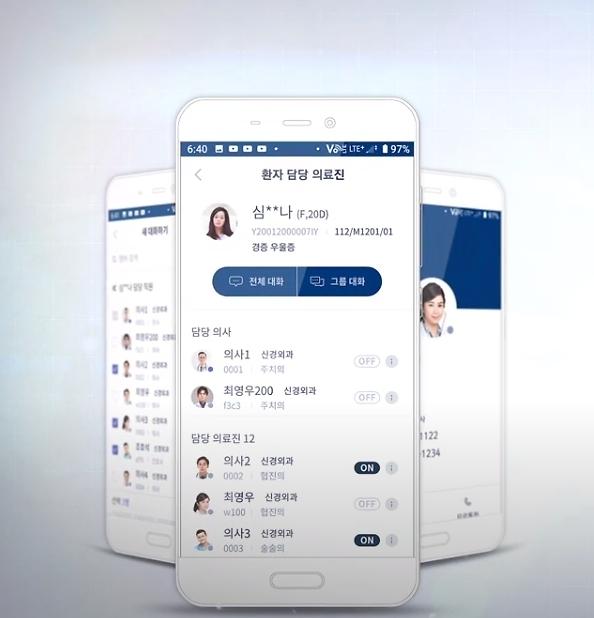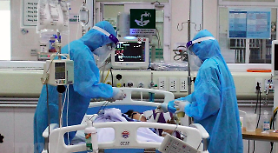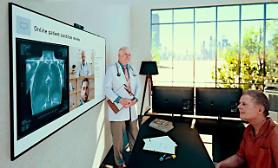
This image shows the concept graphic of NHN's MedicalTalk. [Courtesy of NHN]
SEOUL -- The use of messengers for collaboration by medical staff is restricted in South Korea because a medical law prohibits uploading patients' medical information to external platforms. To get around regulations, NHN, an IT company that focuses on cloud services, has used its technology and know-how to develop a cooperate care software called "TOAST MedicalTalk" at the request of medical staff.
MedicalTalk is a specialized medical team-only collaboration messenger for multidisciplinary care, which refers to a medical treatment system that seeks optimal methods through cooperation with various medical departments for one patient. The first adopter is Yongin Severance Hospital affiliated with Yonsei University College of Medicine in Seoul.
"To treat a single patient, several doctors can share treatment information and details, and find the best treatment together," Baek Chang-yeol, who has led the development of MedicalTalk, told Aju Business Daily.
In 2019, NHN jumped into a SaaS (Software as a Service) market by launching a cloud-based integrated work collaboration platform for enterprise customers. Saas uses a software licensing and delivery model in which software is licensed on a subscription basis and is centrally hosted.
Based on NHN's platform for enterprises, Baek developed MedicalTalk that provides functions such as chatting, video conferencing, document sharing and whiteboarding for the cooperation of medical personnel who do not need to open separate chat rooms. When a patient is hospitalized, the chat room for cooperative diagnosis is automatically open.
If the medical team executes MedicalTalk, it can immediately check the list of patients in real time. The contents of consultation in the chat room can be stored in the hospital's electronic medical record (EMR). Authentication using fingerprints and facial recognition are required when accessing MedicalTalk through an external network. Personal information will not be stored elsewhere.
"The cooperative care platform is more useful for local clinics than upper-grade general hospitals. It is regrettable that we cannot provide services to town hospitals due to government regulations," Baek said, complaining about numerous regulations that have hindered the development of digital innovation in South Korea's medical industry.
Domestic tech companies want quick deregulation so that they can secure a competitive edge in non-contact medical services such as telehealth, which is a service via electronic information and telecom technologies that allow long-distance contact, care, advice and monitoring.
"There are too many regulations that need to be overcome," Baek said. "Since cloud services are impossible, only advanced general hospitals with their own infrastructure can introduce MedicalTalk, and local and mid-sized hospitals that lack or do not have IT infrastructure cannot even consider introducing it."
Copyright ⓒ Aju Press All rights reserved.




